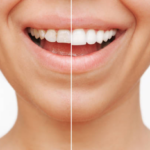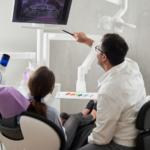Periodontal scaling and root planing is a standard dental procedure for treating periodontal (gum) disease. It is an effective but complex and often misunderstood treatment option.
This procedure is designed to remove plaque and tartar from below and above the gum line and smooth out the root surfaces to help protect the teeth from further infection. Understanding the basics of periodontal scaling and root planing can help you make an informed decision about your dental health.
By familiarizing yourself with the procedure details, you can be better prepared to discuss your treatment options with your dentist. This article will explain what periodontal scaling and root planing are, why they are done, and what you can expect during and after the procedure.
What Is Periodontal Scaling And Root Planing?
Periodontal scaling and root planing is a procedure that is used to treat gum diseases, such as gingivitis and periodontitis. It is a relatively short, in-office procedure performed by a dentist, oral hygienist, or dental therapist. The purpose of the procedure is to clean away the plaque and tartar that have built up on your teeth.
This buildup is the leading cause of gum disease. It also helps smooth out the root surfaces of your teeth to prevent future gum disease from occurring. During the procedure, your dentist will clean your teeth below the gum line and then smooth out the root surfaces of your teeth.
Scaling and root planing are done as a part of a complete periodontal treatment, often called scaling and root planing or periodontal maintenance.
Why Are Periodontal Scaling and Root Planing Done?
Periodontal disease is the leading cause of tooth loss in adults. It occurs when plaque—a sticky film of bacteria, food particles, and saliva—builds up below the gum line. This plaque irritates the gums and causes them to swell, leading to bone loss.
If left untreated, this disease can result in tooth loss. Periodontal scaling and root planing are part of a complete periodontal treatment, often called scaling and root planing or periodontal maintenance.
This procedure helps clean away the plaque and tartar that have built up on your teeth. It also helps smooth out the root surfaces of your teeth to prevent future gum disease from occurring.
What Can You Expect During the Procedure?
During the procedure, your dentist will clean your teeth below the gum line and then smooth out the root surfaces of your teeth. The procedure will likely be done in one visit to your dental office.
Your dentist may use local anesthesia to help minimize your discomfort. This can be done with a dental block, an injection of numbing medication, or a combination of both.
Once you have been anesthetized, your dentist will use scalers, special instruments that are designed to break up the tartar and plaque, and curettes, small prongs designed to break up the tartar and plaque between teeth, to clean your teeth.
They will also use curettes to smooth out the root surfaces of your teeth. The entire cleaning process, from the initial cleaning to the final smoothing, should take 20 to 30 minutes.
What Can You Expect After the Procedure?
After your teeth have been scaled, you will most likely feel some increased sensitivity in your teeth. This is commonly known as “tooth tenderness” and is expected following the procedure. Consider taking an over-the-counter pain reliever, such as ibuprofen, to help relieve any discomfort and keep your teeth from feeling tender.
Avoid eating extremely hot or cold foods and beverages until your mouth fully recovers. Also, avoid chewing on the side of your mouth that has been treated until your mouth has fully healed.
Avoid toothpaste containing baking soda, peppermint, or other intense flavors until your mouth has healed. While there are no strict guidelines on when to resume normal activities after the procedure, you should avoid strenuous exercise while healing your mouth.
It would be best if you also avoid heavy lifting for a while. You should also avoid brushing or flossing your teeth immediately after the procedure. You should wait 24 hours before resuming these activities.
Avoid smoking or using tobacco products until your mouth has fully recovered. You should also avoid drinking alcohol and eating very sugary foods immediately after the procedure.
Risks of Periodontal Scaling and Root Planing
While periodontal scaling and root planing is a safe procedure, it does come with some risks. Any medical procedure has some risk of complications, and scaling and root planning are no exception. The most common complications with scaling and root planning include:
Toothache
As discussed above, you should know that your teeth may be more sensitive after the procedure. If you experience pain or sensitivity that lasts longer than expected, you should contact your dentist.
Gum infection
While rare, an infection can occur in your gums following the scaling and root planing procedure. You should contact your dentist if you notice any signs of an infection, such as redness, swelling, or pain.
Alternatives to Periodontal Scaling and Root Planing
If you have signs of gum disease, your dentist may recommend that you receive a complete periodontal treatment or scaling and root planing. While this is a very effective way to treat gum disease, consider alternative treatments if you have certain health conditions or restrictions.
If you have diabetes and are worried about the potential complications that may come with scaling and root planing, you may consider a non-surgical gum disease treatment.
A periodontist, a dentist specializing in gum disease, can perform an oral laser procedure to remove excess gum tissue and bacteria from your teeth. While this procedure is effective, it is much more expensive than traditional scaling and root planning.
Alternatively, suppose you have sensitive teeth and are worried about the potential side effects of scaling and root planing. In that case, consider scaling and polishing, also known as mini-scaling.
This procedure is a more straightforward, less invasive method of removing plaque and tartar from your teeth. It is also much less painful than traditional scaling and root planning.
Tips for Recovery
While there are no strict guidelines on when to resume normal activities after the procedure, you should avoid strenuous exercise while healing your mouth. It would be best to avoid heavy lifting until your mouth has fully recovered.
You should also avoid smoking or using tobacco products until your mouth fully recovers. Avoid drinking alcohol and eating very sugary foods immediately after the procedure.
Conclusion
Periodontal scaling and root planing is an effective but complex dental procedure and often misunderstood treatment option.
This procedure is designed to remove plaque and tartar from below and above the gum line and smooth out the root surfaces to help protect the teeth from further infection.
Understanding the basics of periodontal scaling and root planing can help you make an informed decision about your dental health. By familiarizing yourself with the procedure details, you can be better prepared to discuss your treatment options with your dentist.
Visit Your Dentist At Cimarron Family Dentistry Now!
If you’re looking for a dentist in Hurst, heading to Cimarron Family Dental Clinic is a perfect choice. Not only do we offer quality dental care, but we also make it convenient for patients.
If you live in the area, you don’t need to worry about traveling to the dentist—we’re only minutes away. And if you’re new to the city or haven’t had a chance to schedule an appointment yet, don’t wait any longer—visit today so that you can start enjoying your favorite sweets!
As a family-owned and operated practice, Cimarron Family Dental Clinic prides itself on providing comprehensive dental care for patients of all ages. We want every person who walks through their doors to feel comfortable and at ease.
So whether you’re looking for family dentistry or need treatment for sensitive teeth or root canal therapy, schedule an appointment with Cimarron Family Dental Clinic today or call us at (817) 268-1112.










